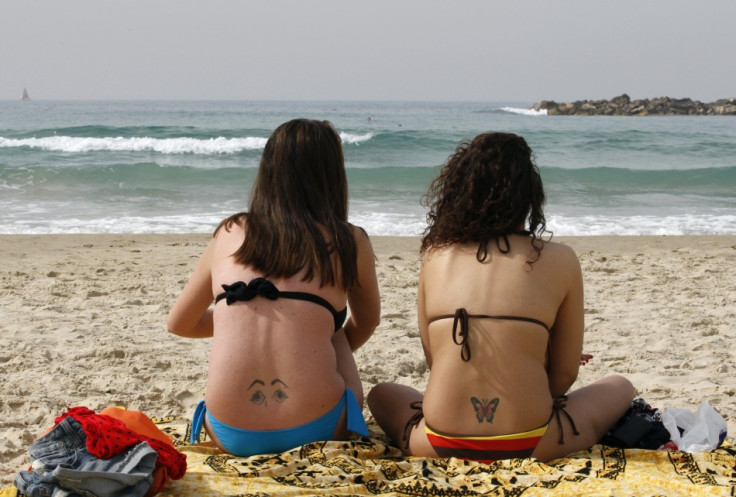Inside Israel: Tel Aviv Counts the Economic Cost of Gaza War

It looked like 2014 would be another record year for Israeli tourism. The previous year Israel recorded its highest number of visitors in its history. Increasing numbers of low cost flights from Europe had opened up this historically rich country to a new, younger crowd.
Israel's government was ambitious to build on the previous year's successes. Optimism surrounding Israeli tourism was evident in the marketing drive coming from the government. A major television advertising campaign was launched for the Tour de France, the world's most watched cycling event. But in early July, with the cycling elite still days away from Paris, the bubble of optimism burst abruptly.
Israel launched its war on Hamas after militants from the group fired volleys of missiles into Israel. Most of the rockets landed in southern Israel, but some reached as far as Tel Aviv in the north. While the American-supplied Iron Dome anti-rocket system ensured that damage to the city was limited, the sound of air-raid sirens along with images of ordinary civilians running for bomb shelters, were enough to halt the growth in the country's tourism sector.
A wave of cancellations hit the hotels in Israel's biggest city, with the impact immediately reaching the clubs, bars and restaurants that rely on foreign visitors for much of their revenue.
"Wow. The war killed us, there was no-one," said Nir Wimann, owner and chef at Mel and Michelle restaurant in Tel Aviv.
Located a block away from the beach and the city's major hotels, the tables at Wimann's trattoria are usually filled with international tourists.
"In the summer we rely a lot on tourists and hotels and the Israelis tend to go to the beach or to other restaurants that are more suitable for summer," said the restaurant's general manager Ayelet Barnea. "We've been affected greatly. First of all because of the tourists. When it started hitting Tel Aviv, when the sirens and rockets started blasting in Tel Aviv, the tourists vanished."
"When the army went in [to Gaza] and we started having casualties, Israelis stopped coming as well," she told IBTimes UK.
"The hotels near us said they were at 10% of their regular capacity for the summer, but I think for us it was even less. It wasn't only tourists, it was also the Israelis... The mood and atmosphere in the city was not one of going out drinking and having a big meal with friends... The hardest evenings in terms of casualties were almost completely empty."
The fighting in Gaza lasted for 50 days and led to the deaths of 66 Israeli soldiers and seven civilians. The death toll on the Palestinian side was much higher, as more than 2,200 people were killed, the majority of them civilians.
"A lot of our male staff were recruited. I think four or five of our waiters and kitchen staff went to Gaza, one of them for over a month, so that was hard too," Barnea told IBTimes UK.
While that would usually be a problem, the lack of business meant at the time meant that Wimann and Barnea were able to cover the gaps in staffing. The male staff have returned from Gaza, but the restaurant is still struggling with empty tables as tourists continue to avoid Israel.
"I don't think we've completely recovered, I think this summer was a bad summer for us... Tourist wise, there's no recovery and I don' think there will be until next summer," Barnea said.
© Copyright IBTimes 2025. All rights reserved.






















